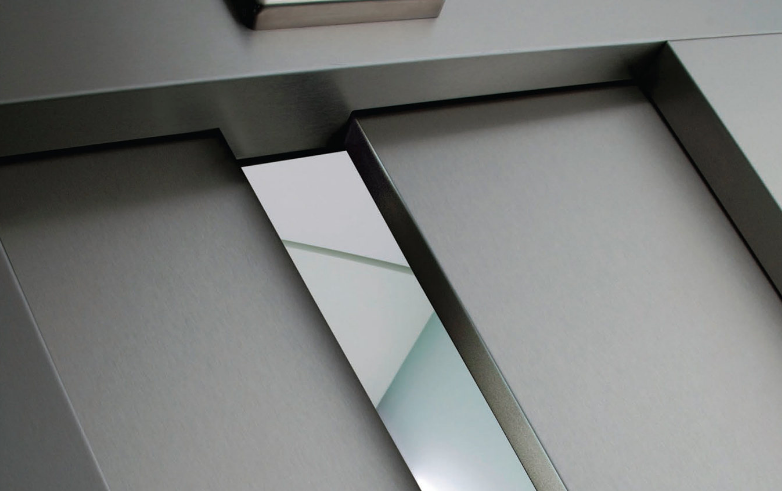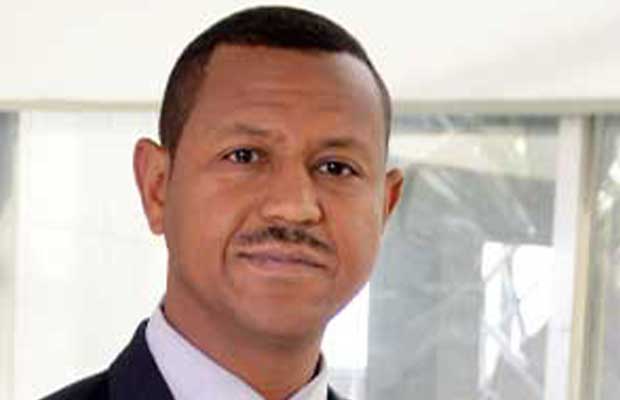
A Chinese state-owned firm that is constructing major buildings in the country has just secured another project to build Oromia Insurance's head office for 1.1 billion Br. Jiangxi Corporation for International Economic & Technical Cooperation will construct the 35-storey building at the heart of Mexico Square.
Pan Weigas, on behalf of Jiangxi, signed the contractual agreement with Tegistu Shiferaw, acting CEO of Oromia, early last week. Jiangxi Corporation was hired after winning a bid that was floated at the end of last year. The bid initially drew the attention of nine contractors, but only five of them submitted their price offer.
China State Construction & Engineering Corporation, which is building the headquarters of the Commercial Bank of Ethiopia; China Communications Construction Company (CCCC); Rama Construction Plc; and Dugda Construction Plc all made offers along with the winner. Jiangxi Corporation, which will work on the structural work of the building, won the bid by offering the lowest price of 1.1 billion Br.
The firm has previously secured deals to build Wegagen Bank’s headquarters for one billion Birr, the Embassy of Equatorial Guinea in Addis Abeba, and the headquarters of the Private Organisations Employees' Social Security Agency for 682 million Br. It is expected to finalise Oromia's headquarters in three years.
Expected to rest on 3,004Sqm of land near Mexico Square, the building is estimated to cost the insurance firm somewhere between 1.5 billion Br and two billion Birr. The building is slated to be completed in three phases: shoring and excavation; structural work; and finishing.
The shoring and excavation work was awarded to Anchor Foundation Specialist Plc a year ago. The first stage has been completed by the contractor that was hired for 70 million Br. Anchor had also worked on the foundation construction for the headquarters of United and Nib banks, Marriot International Hotel, and the Addis Abeba Light Railway Transit Qality Terminal.
Zeleke Belay Architects designed the building after winning the design bid floated in 2018. It will also supervise the construction of the building.
This is a long-term investment, according to Tegistu. Oromia Insurance has been paying seven million Birr annually to Oromia International Bank in rental fees for its current headquarters. The insurance company occupies a fifth of the 13-floor building on Africa Avenue.
Oromia, which was established 11 years back with 25 million Br in paid-up capital and 540 shareholders, operates with 49 outlets, of which 43 are branches. In the last fiscal year, the firm elevated its paid-up capital and number of shareholders to 414 million Br and 1,014, respectively.
Financial institutions are rushing to claim territory in the fast-changing Financial District of Addis Abeba. Along with Oromia, Zemen Bank, Nile Insurance, United Bank and Nib Bank are among the financial firms building head offices in the neighbourhoode.
The firms are investing money in buildings and other fixed assets due to the galloping inflation in the country, according to Tenahun Mekonnen, general manager at TAHB Engineering & Consultants, a local construction consultancy firm.
Tegistu also agrees with this, saying that the project is aimed at tackling inflation and other factors that affect the cash assets of his company.
"The inflation and the unstable economy is harming the liquid assets of the companies as the value of the local currency is seriously declining," said Tenahun. "Thus, they're aggressively changing their liquid assets into fixed assets."
Tenahun also added that higher costs for renting offices could not be the main reason for the companies embarking on investments in buildings.
"The investment isn't feasible in terms of returns and profit as the period for return on investment would be long," said Tenahun. "The payback period on the Oromia Insurance headquarters could reach 70 years."
Even if it is difficult to predict due to economic instability, the firms should conduct studies on the payback periods of their major investments to make viable choices, urged Tenahun.
PUBLISHED ON
Nov 21,2020 [ VOL
21 , NO
1073]

Fortune News | Jul 20,2019

Radar | Apr 01,2024

Fortune News | Oct 24,2020

Radar | Nov 27,2018

Fortune News | Feb 18,2023

Radar | Apr 26,2019

Fortune News | Mar 26,2022


Radar | Jul 06,2019

Exclusive Interviews | Jan 05,2020

Dec 22 , 2024 . By TIZITA SHEWAFERAW
Charged with transforming colossal state-owned enterprises into modern and competitiv...

Aug 18 , 2024 . By AKSAH ITALO
Although predictable Yonas Zerihun's job in the ride-hailing service is not immune to...

Jul 28 , 2024 . By TIZITA SHEWAFERAW
Unhabitual, perhaps too many, Samuel Gebreyohannes, 38, used to occasionally enjoy a couple of beers at breakfast. However, he recently swit...

Jul 13 , 2024 . By AKSAH ITALO
Investors who rely on tractors, trucks, and field vehicles for commuting, transporting commodities, and f...

Jul 12 , 2025
Political leaders and their policy advisors often promise great leaps forward, yet th...

Jul 5 , 2025
Six years ago, Ethiopia was the darling of international liberal commentators. A year...

Jun 28 , 2025
Meseret Damtie, the assertive auditor general, has never been shy about naming names...

Jun 21 , 2025
A well-worn adage says, “Budget is not destiny, but it is direction.” Examining t...